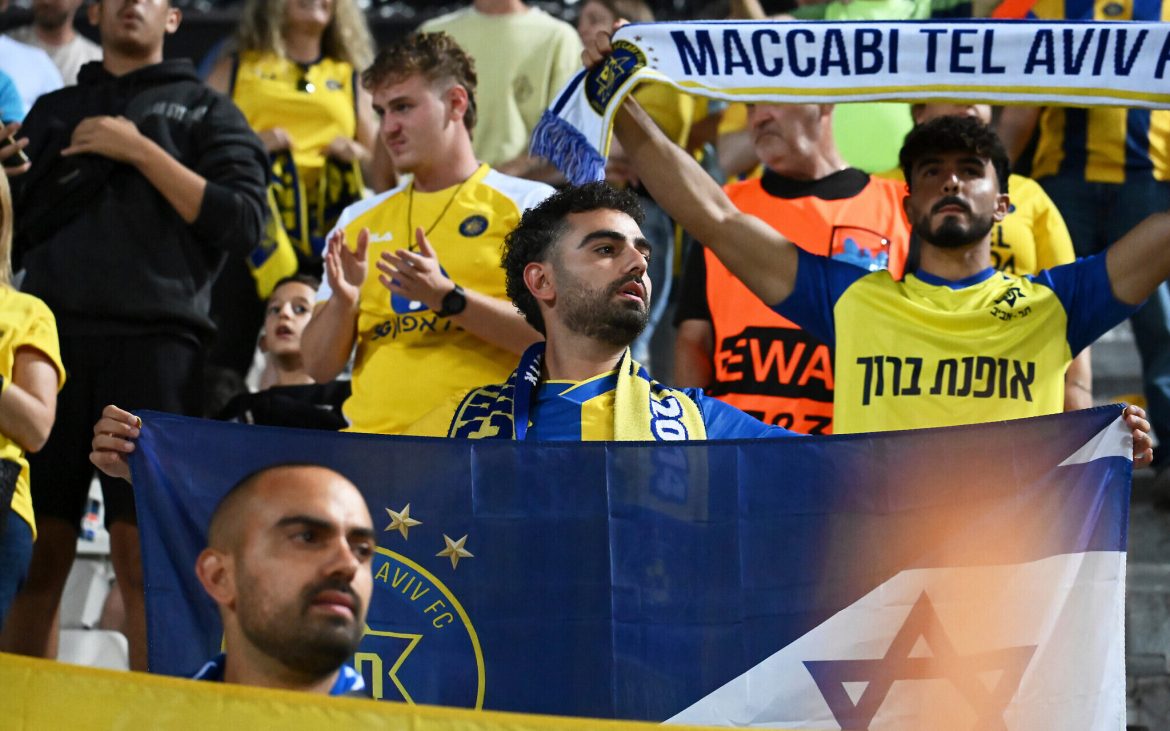Football fans across Europe are buzzing over a decision that has left many puzzled and upset — supporters of Maccabi Tel Aviv will not be allowed to attend their team’s upcoming Europa League clash against Aston Villa in Birmingham.
The move, made by West Midlands Police, has stirred debate over whether safety concerns or deeper social issues are truly behind it.
Safety Concerns or Signs of Antisemitism?
The Israeli club’s senior officials are questioning whether antisemitism may have influenced the call to stop their fans from entering the UK for the November 6 match.
Maccabi Tel Aviv’s chief executive, Jack Angelides, didn’t hold back his disappointment, suggesting that the decision could be sending a troubling signal.
Angelides explained that the club had been told the decision stemmed from concerns that British authorities might struggle to ensure the safety of Israeli supporters.
Still, he described the move as “an extremely important moment” and urged reflection on what it represents.
Speaking on BBC Radio 4, he noted that small decisions like this could build into “something more sinister,” adding that British supporters of Maccabi, many of whom are Jewish, are effectively being told it’s unsafe to attend a football match in their own country.
Political Leaders Step Into the Debate
Prime Minister Sir Keir Starmer has openly criticised the police’s decision.
Posting on X (formerly Twitter), he called it “the wrong decision,” insisting that “we will not tolerate antisemitism on our streets.”
He emphasised that it is the duty of law enforcement to make sure “all football fans can enjoy the game without fear of violence or intimidation.”
Downing Street has also become involved, with Culture Secretary Lisa Nandy holding urgent discussions to explore ways to allow fans to attend the match safely.
A spokesperson for No. 10 said talks were happening “at pace, across Government” and hinted that further updates could arrive soon.
UEFA’s Expectations and Past Incidents
According to UEFA’s standard competition rules, visiting teams are entitled to receive five percent of stadium capacity for their supporters — meaning Maccabi Tel Aviv should have been allocated roughly 2,100 tickets at Villa Park, which seats over 42,000 fans.
However, this guideline was overridden due to what police described as “physical and safety factors.”
West Midlands Police said the decision was not arbitrary, citing “previous incidents” involving Maccabi fans, including violent antisemitic attacks during the club’s Europa League fixture against Ajax in Amsterdam last year.
That match led to 68 arrests and was condemned by Dutch Prime Minister Dick Schoof as “shocking and reprehensible.”
Because of those events, authorities have now classified the Aston Villa–Maccabi match as “high risk” after conducting an extensive security review.
UEFA’s Position and the Search for a Solution
While expressing disappointment, Maccabi Tel Aviv officials have confirmed they’ve been in touch with UEFA about the situation.
Angelides clarified that Aston Villa had simply passed along the police’s recommendation and maintained “excellent co-operation” with Maccabi throughout the process.
UEFA also released a statement saying it encourages “both teams and the competent authorities” to find a way for fans to support their teams safely.
However, the organisation noted that final safety decisions rest with local authorities, who must act based on their own risk assessments.
What Comes Next?
With the clock ticking toward November 6, all eyes are on the UK Government and UEFA to see whether a compromise can be reached.
While security concerns remain legitimate, many believe the total exclusion of Maccabi fans sends the wrong message at a sensitive time.
For Jewish football supporters — especially those living in Britain — the outcome of this decision will be more than just about football; it will be about their right to feel safe and included in their own communities.
Share on Facebook «||» Share on Twitter «||» Share on Reddit «||» Share on LinkedIn
